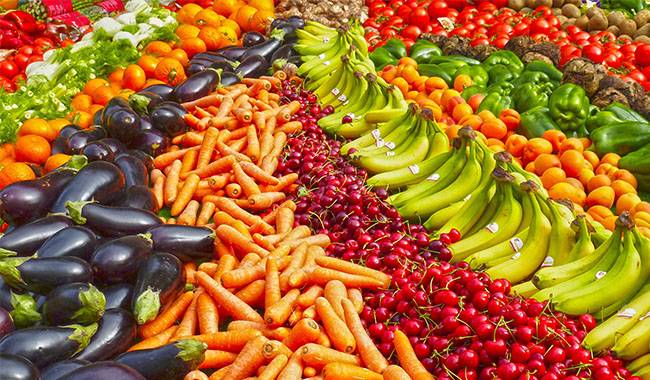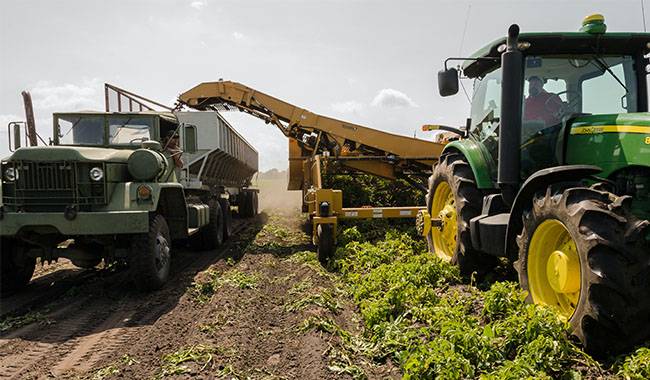
What is organic farming? Today, the phrase “organic farming” is not only a household word but the cause of much debate. Some say it is a particularly correct farming method, while others believe it is only partially correct.
Let’s look at what organic, natural, or nature-based farming (its synonyms) is and what its principles are.
Organic farming has several other synonyms: ecological farming, organic farming. Organic or natural farming focuses on the health of the ecosystem, soil, plants, animals, and humans.
A LITTLE HISTORY OF ORGANIC FARMING
The theory of organic farming is not as new as it may seem, and similar advances in chemical pesticides occurred in the 1940s, leading to the decade known as the “pesticide era.” These new farming techniques, while beneficial in the short term, also had serious long-term side effects, such as soil sloughing, erosion, and an overall decline in soil fertility, as well as health concerns about the toxic chemicals entering the food supply. In the late 1800s and early 1900s, soil biology scientists began to seek ways to remedy these side effects while still maintaining high yields.
In 1921 Albert Howard, the founder and pioneer of the organic movement, and his wife Gabrielle Howard, an accomplished botanist, founded the Institute of Plant Industry to improve traditional farming practices in India. Among other things, they brought improved tools and improved husbandry methods through scientific training; and then developed protocols for crop rotation, erosion prevention techniques, and the systematic use of compost and fertilizer by combining aspects of traditional Indian methods. Spurred by these experiences in conventional agriculture, Albert Howard returned to England in the early 1930s, where he began to implement organic farming systems.
Several organic farming books reveal principles and evidence that show that a thinning approach to the soil is less invasive to nature, less time-consuming, and ultimately more productive than intensive farming systems.
Definition: Organic farming is defined as the production of crops, animals, and other products without synthetic fertilizers and pesticides, genetically modified species or antibiotics, and growth-promoting steroids or other chemicals.
The research on natural agriculture did not stop there. This is not to say that it has been popular over the years, it has always had proponents and detractors, but research has been ongoing and has proven time and again that careful treatment of the soil leads to truly meaningful results. Thus, what organic farming means today can be expressed in the following terms.
- Protecting and maintaining the natural fertility of the soil.
- Protection of the ecosystem.
- Preservation of the natural fertility of the soil, protection of the ecosystem, and friendly to the environment.
- Harvesting with much lower input costs.
BASIC METHODS OF ORGANIC FARMING

Based on the above, the principles of organic farming become clear.
- Reject deep tillage.
- Reject mineral fertilizers.
- rejection of pesticides.
- Promotion of microorganisms and worms.
Rejection of deep tillage
This rejection of deep plowing of the soil is based on the understanding that the upper layers of the soil are home to a large number of organisms that not only produce humus but also improve soil structure. Plowing and deep digging destroy their habitat conditions, altering the microbial composition of the topsoil and, with it, the natural ability to maintain soil fertility, increasing the risk of weathering and leaching of elements important to plants.
The negative effects of this cultivation technique do not appear immediately, but after a few years, making it necessary to apply mineral fertilizers and other chemicals to keep yields at appropriate levels.
According to conservation agriculture, the soil should not be turned over but should be loosened to a depth of no more than 2-2.7 inches (5-7 cm) – preferably 1 inch (2.5 cm).
Rejection of mineral fertilizers
The rejection of mineral fertilizers is based on the realization that almost all fertilizers (substances added to the soil to replenish missing nutrients) have a hidden aftereffect. Under their influence, the acidity in the soil is gradually altered, the natural cycle of substances is disturbed, the species composition of soil organisms is changed and the soil structure is disrupted.
In addition, certain mineral fertilizers have a negative impact on the environment (air, water) and the plants themselves, thus affecting product quality and human health.
Organic farming replaces the use of fertilizers with glycosides, mulches, composts, and other organic products.
Avoiding the use of pesticides
No herbicide, pesticide or fungicide is non-toxic. They are all toxic substances (for this reason, there are strict regulations on the use of pesticides) and tend to accumulate in the soil in the form of residues.
Thus, for example, it has been calculated that the percentage of yield loss can reach 25% in the subsequent crop rotation due to using some herbicides under the main crop.
Nature-based agriculture recommends measures to prevent diseases and pests, but if the problem is not prevented, folk remedies or biological agents should be used.
Encouraging the growth of microorganisms and worms
The promotion of microorganisms and worms in organic farming is based on the fact that these soil inhabitants are directly involved in soil formation. Thanks to microorganisms and larger inhabitants of the soil (worms, bugs, spiders), mineralization of organic residues, the transformation of vital nutrients, fight against pathogenic microorganisms, pests, improvement of soil structure, and many other things lead to a soil characterized by health.
Healthy soil is the basis for healthy plants, able to resist adverse climatic events, diseases, and pests.
To achieve this principle, Natural Agriculture recommends using organic matter, EM preparations, and the avoidance of deep digging to improve soil fertility.
More Related Information About Gardening Beginners







